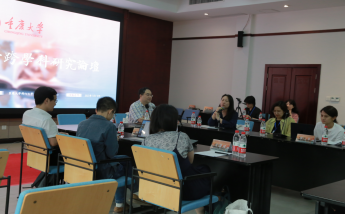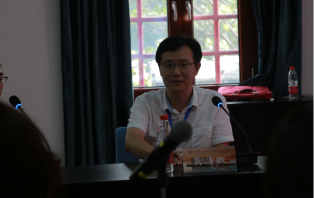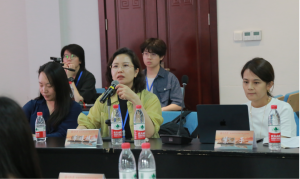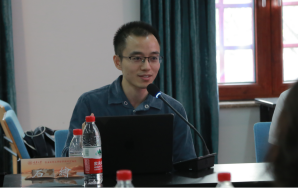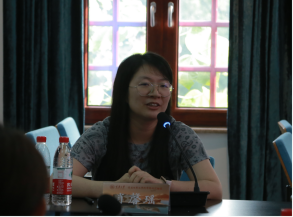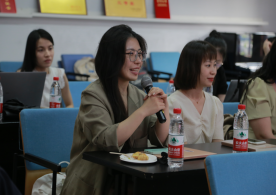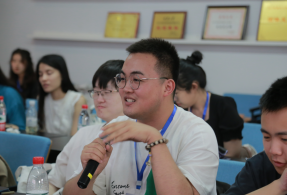Date: 2023-07-19 17:42丨Source丨Author:
From July 1 to 2, 2023, the first World Literature Interdisciplinary Research Forum was successfully held in Liberal Arts College of Chongqing University. The theme of this year’s workshop was “Facing the Crisis and Chance of Globalization: World Literature in Action”. The forum was co-sponsored by the Institute for Advanced Studies in Humanities and Social Sciences of Chongqing University and the Editorial Office of the Journal Comparative Literature in China, with the help of the Science Fiction Literature and Science and Technology Humanities Research Center of Chongqing University. More than 40 researchers from all over the world participated in the workshop.
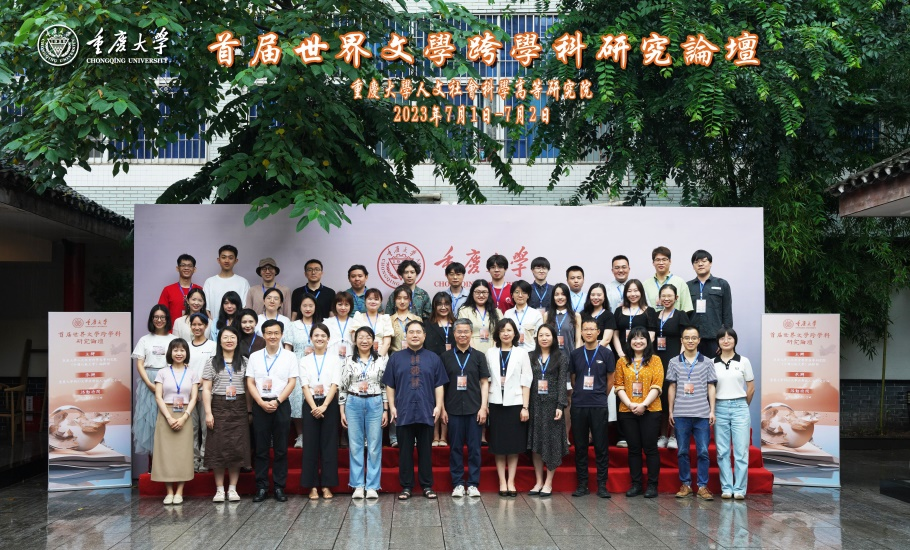
On the morning of July 1, the forum was opened in the Lecture Hall of Liberal Arts College. Professor Li Guangyi, Vice Dean of the Institute for Advanced Studies in Humanities and Social Sciences of Chongqing University, and Professor Song Binghui, Editor-in-Chief of Comparative Literature in China, delivered opening speeches respectively. Li Guangyi pointed out that in the context of frequent global crises, the humanities research in the new era calls for more diverse disciplinary backgrounds and more open research ideas. He introduced the diverse academic backgrounds of the participants in this forum, and expressed his expectations for the future development of world literature and his warm welcome to the participants. Song Binghui said that there are two sets of key words in this forum: one is “world literature” and the other is “interdisciplinary research” in his speech. While sharing the two sets of key words, he also introduced the purpose and special columns of Comparative Literature in China, and encouraged everyone to participate and communicate actively.
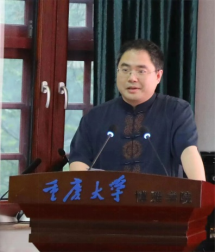
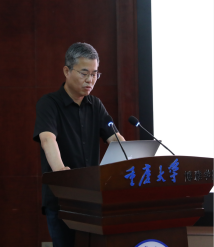
After the opening ceremony, Wang Ban, the Professor of Department of East Asian Languages and Cultures in Stanford University and Chair Professor of William Haas in Chinese Studies, delivered a speech entitled “Traps and Visions of World Literature”. In his speech, by using science fiction as a starting point, Wang Ban called for a “critical world literature” that could confront injustice and inequality. And he took Liu Cixin”s “Support Human Beings” as an example to interpret the critique of the neo-liberal globalization order. After that, Li Guangyi and Song Binghui communicated with Wang Ban on the content of the speech. Li Guangyi questioned the specific trend of “critical world literature”, while Song Binghui discussed the concept at the practical level.
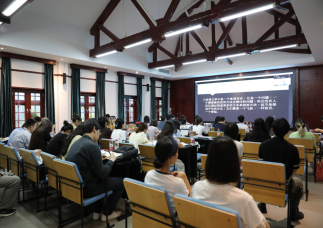
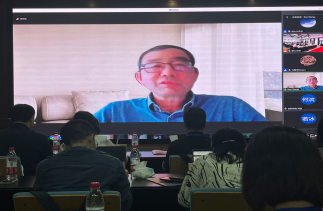
On the afternoon of July 1, a dialogue session for scholars was conducted. After explaining the key word of “glocalization”, Prof. Hua Yuanyuan pointed out the close relationship between science fiction and “glocalization”, and discussed the worldwide significance of science fiction literature by taking Chen Qiufan’s “The Waste Tide” as an example. Prof. Gong Haomin studied the consciousness of “nation” and “world” in A Lai’s Tibetan novels, and analyzed his constant questioning and thinking about national and world literature in the process of his writing focusing his rewritten novel King Gesar. Prof. Li Guangyi combed the different aspects of the concept of “world literature”, emphasizing that at the historical moment of deepening globalization, a kind of writing that focuses on the overall situation and considers the overall destiny of mankind can interpret the totality of literature, and then updated the concept of “world literature”. Professors Zhang Jing, Liu Yang, Song Yu, Ye Zi, Hua Yuanyuan and Xiong Ying commented on the above report. Xiong Ying agreed with Li Guangyi’s thinking mode of taking world literature as a cognitive device in his report, but argued about the concept of totality and the relationship between “totality” and “specific” in the report.
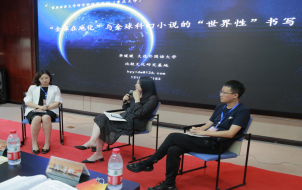
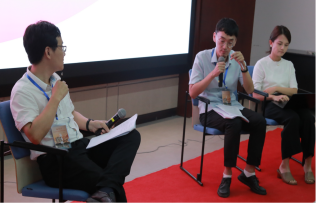
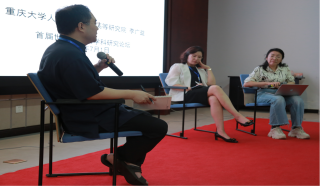
The first panel on the morning of July 2 was hosted by Prof. Zhang Jing, with the theme of “Understanding China in the World”. Taking the “Paper Republic”, a Chinese literary exchange network, and the English literary publication Pathlight which were dedicated to promoting the overseas dissemination of contemporary Chinese works as the research objects, Prof. Ye Zi pointed out that the translation choices of Nicky Harman, a British sinologist and translator, and Eric Abrahamsen, a translator and publisher, not only participated in the social public events during the publication period, but also responded to the acceptance of specific works by contemporary Chinese literary criticism and public opinion. Wei Ruobing focused on the works of Chinese science fiction writers such as Chen Qiufan, Chi Hui and Hao Jingfang, believing that they challenged the Utopian idea of “solarpunk” and created a heterotopia that could provide an “different” way to get rid of the world crisis. Centering on the 1958 comedy Jin Ling Zhuan, Prof. Zhu Ping explores a non-vision-centered world ecological film that can show the sustainable development of man and nature. Professors Luo Yu, Li Guangyi and Ruan Yunyan served as the commentators. Li Guangyi agreed with Wei Ruobing’s way of putting Chinese science fiction in a broader cultural and meaningful space in his report, and believed that his exposition breaks through the previous classification or label of Chinese science fiction and launches a discussion on Chinese science fiction literature at the level of world science fiction or emerging literary creation.
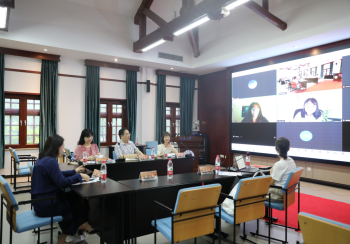
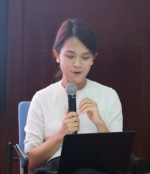

The second panel was chaired by Prof. Li Guangyi, with the theme of “Understanding the World in China”. Zhang Jing pointed out that in the study of the relationship of Chinese literature in the early 20th century, the study of influence or acceptance was a more feasible way. But in dealing with the problem of literary relationship after the new era, it was a new way to solve the practical dilemma by using “the world factors in Chinese literature” as a “third element” outside the duality. Starting from the relationship between Chinese literature and world literature in the early 20th century, Xiong Ying studied the characteristics of Chinese literature and the factors of world literature between the two waves of globalization, rediscovered the world literature and Chinese literature in the process of overlapping historical integration, and reproduced the relationship between Chinese and foreign literature under the multi-polar structure. By re-interpreting Li Chuli’s two representative texts How to Develop Revolutionary Literature and Natural Growth and Purpose Consciousness from the perspectives of discourse construction, translation and narrative strategy analysis, Ruan Yunyan found that although Li Chuli’s “revolutionary literature theory” was not mature, it actually contained resonance with the world proletarian literary movement and also promoted a series of subsequent translation actions of Lu Xun. Xiao Xinyao, Shi Hui and Xiong Ying served as the commentators. From the perspective of comparative literature, Xiao Xinyao affirmed Zhang Jing’s research path of summarizing and refining laws from case studies, and the possibility of establishing a “Chinese School” of comparative literature form this point of view.
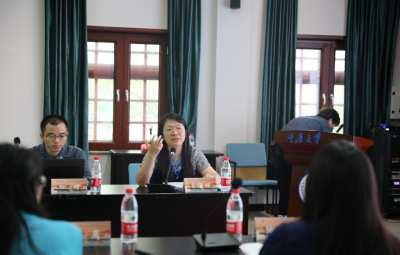

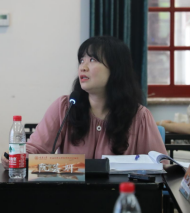
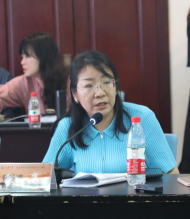
On the afternoon of July 2, the Forum’s special session for graduate students took place. The session consists of six themes and was held in two time periods in the second teaching building of Area A of Chongqing University. The themes in the first period are “Ecological Literature and Natural Writing”, “Translation, Exchange and Cross-cultural Translation” and “World Imagination in Literature”. 12 graduate students from different universities and scientific research institutions, Yang Qinlong, Qian Yalu and Zhai Ying, etc, discussed different propositions such as ecology, translation and dissemination of literature, ethnic culture and so on with Luo Yu, Zhang Jing and Ruan Yunyan, and explored the multiple connotations and orientations.
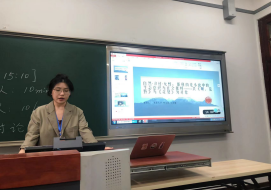
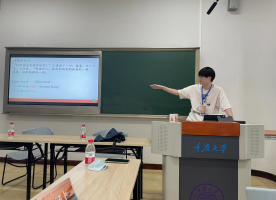
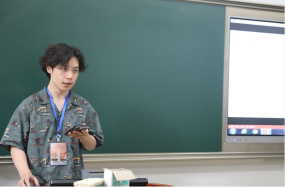
In the next three panels, 15 graduate students such as Wang Yukuo, Hu Chenyue, Tan Xuan and six commentators such as Ye Zi, Hua Yuanyuan and Liu Yang brought us multi-dimensional deep thinking about control theory, meta-universe, other’s theory, human emotional expression and Utopian imagination focusing on “World Literature from the Perspective of Critical Theory”, “Human Care in World Literature” and “Science Fiction Literature and Community Imagination”.
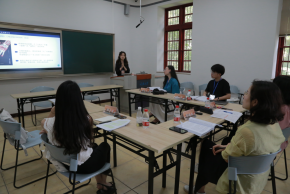
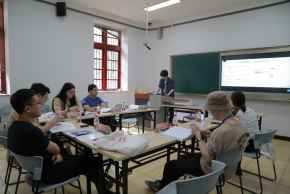
Finally, the Round Table discussion took place in the auditorium in Boya College. Professors Li Guangyi, Zhang Jing, Shi Hui, Ye Zi, Xiao Xinyao, Hua Yuanyuan, Gong Haomin and other scholars, from their respective perspectives, looked forward to the approach of this technological turning point with the present graduate students. At a time of overlapping dangers and opportunities, how world literature and interdisciplinary research could break through the dense fog, and act and participate in global change. During the heated discussion, the first World Literature Interdisciplinary Research Forum was successfully concluded.
